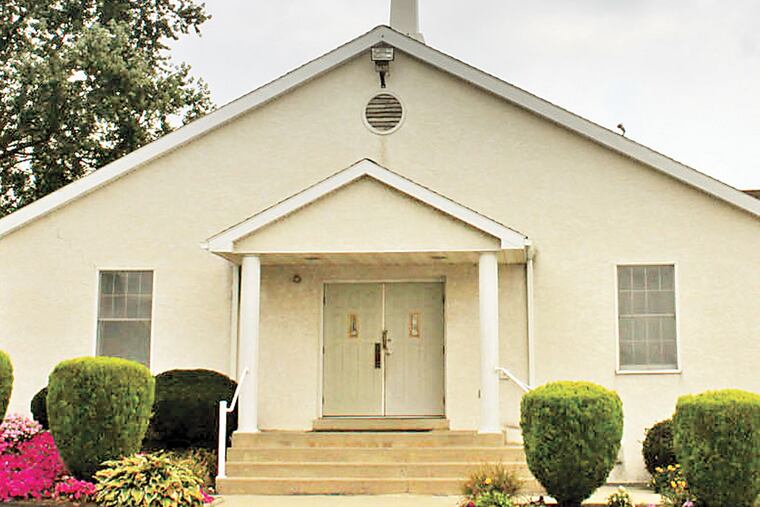A little slice of home, far, far away
Leola Hmong Alliance Church draws worshippers who once called Southeast Asia home.

ON ANY given Sunday, about 20 to 50 people from Philadelphia and Upper Darby head to a simple, white church in Lancaster County, amid Amish farms and buggies and tall fields of corn, to attend service at the Leola Hmong Alliance Church.
The evangelical Protestant church is one of two in the state to offer a service in the Hmong language, according to Senior Pastor Dao Yang and his wife, Jennie, who live across from the church.
Many Hmong people, an ethnic Asian minority, lived in the mountainous regions of Laos and helped the United States fight its secret war against Vietnamese communist forces from 1961 to 1975 during the Vietnam War.
After the U.S. and its Southeast Asian allies were defeated in 1975, many Hmong fled to Thailand and other countries, where they lived in refugee camps for years before being resettled in the U.S.
An estimated 5,000 Hmong (pronounced MUNG) moved to Philadelphia in the late 1970s, but most have now left and resettled elsewhere, often to live a quieter, more rural lifestyle. In 2010, according to census figures, there were 83 Hmong living in Philadelphia and 79 in Delaware County, with the majority in Upper Darby. In comparison, 668 Hmong (the majority of the 1,021 in the state), were living in Lancaster County.
Many, though not all, attend the Hmong Alliance Church.
Who we are: The Leola Hmong Alliance Church, at 9 S. Hershey Ave., was built in 1987. On most Sundays, about 250 to 300 people attend its 10:45 a.m. service conducted in the Hmong language.
The church, about A 90-minute drive from Philadelphia, is part of the U.S. Christian and Missionary Alliance.
The only other church in the state to offer a service in the Hmong language is a Lutheran Hmong church in Mohnton, Berks County.
The Amish-Hmong connection: The Amish people and the Hmong people are very similar in that they love the land and farming, and are conservative, says Pastor Yang, 37. "I think we're kind of kindred spirits," he says.
"The Hmong people and the Amish, we're very close communities. We kind of keep to ourselves. Hmong people love working the land, whether that's basic gardening or raising cattle or chickens."
Jennie Yang, 36, adds that the Hmong in Lancaster County don't own their own farms, but rent land from the Amish or have small gardens in their back yards.
What we're known for: "Because there's not many Hmong people in the area, we tend to be a lot more friendly and we like to outreach to the Hmong community," says Pastor Yang.
"If you move into town and you have family here, we're going to . . . come out and visit you and just shower you with love. We may meet you at a shopping center, but we'll make sure to come out to you . . . and invite you to come to our service."
Big moral issue we're grappling with: The Hmong people are originally animists, believing in the spirit world, which is contradictory to the teachings of the Bible, says Pastor Yang. "We have a few issues with [Hmong people] just fully committing to the church."
Jennie Yang adds: "The reason why we don't want to incorporate any of the old traditions is because it has a lot to do with demons . . . It ties back to old culture . . . and the belief that there is no God. That's why it's a contradiction.
"So you can't say, 'Can we do both?' Because when you do both, then that means you don't really trust in what Scripture says."
God vs. cellphones: "We believe they can coexist," says Pastor Yang. He's comfortable with congregants' Bible apps. "But if they're tweeting and on Facebook, it can be a distraction."